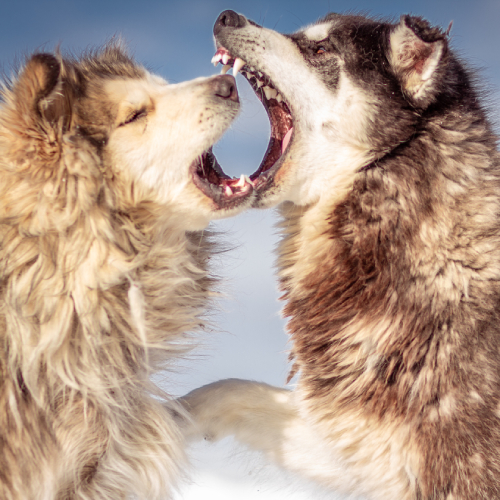July 4th
Forever a case of wolves and sheep?
LEADERS become wolves because those whom they lead behave like sheep, sheep not in the positive sense of being the Lamb of God, full of compassion and care, or as a protected follower of God (Luke 15:6), but in its derogatory aspect of being servile and unquestioning, too easily influenced or led as in the politics, with party members blindly following their leaders.
You become sheep for a variety of reasons. You herd together because it is natural to do so. It is nature’s cornerstone, with entities gravitating towards their own kind-be it plants, animals or humans.
Where there are crossovers, it is the natural consequence of interaction-be it natural or social-which helps to explain our group phenomenon here in this country with Africans, Indians, Syrians, et al, and the ensuing crossovers.
Groups can interact in different ways.
There can be peaceful co-existence, as with the elephant and the hippo drinking from the same pool in the Serengeti; or as with the mahogany and the cedar in the tropical rainforest, each with its own space; or as with humans, as here in this country with Africans and Indians enjoying their mix of chutney soca and doubles as a national food. But there could be conflict-violent conflict-if one animal is seen to encroach on another for water which is scarce, or trespassing on another’s ‘territory’, or between predator and prey; and even with trees, when too close encroachment can stultify growth, as in your overcrowded backyard.
With humans, it is often a clash of egos, over greed, et al, which are all subsets of a clash of ‘interests’ often related to politics.
Suffice it to say the word ‘politics’ connotes divided interests, having a ‘morality of its own’, conniving and manipulative, with conventional ethics and morality having no application, essentially Machiavellian with the ends justifying the means.
The following quote from the movie, The Hunt for Red October, facetious as it may seem, captures the essence of politics: ‘I am a politician/ I am a cheat and a liar/ When I am not kissing babies/ I’m stealing their diapers.’
Group identity, synonymous with racial identity, is often integrated into this politics of divided interests with its concomitant conflict, often of a violent nature: like with blacks in America, seemingly more inclined to the Democrats as against a perceived ‘white’ conservative Republicanism, BLM being a case in point; or as is the perennial Sunni/Shia dichotomy in Mid-Eastern Muslim countries; or the conflict between Hutus and Tutsis in Africa; or the indigenous peoples against the Spanish establishment in Chile; or the Muslims in India against the majority-Hindu India; or one tribe being targeted in the Sudanese conflict; or the ethnic violence in the Manipur state in NE India.
Clash of interests of whatever kind is the wellspring of conflict in politics.
We are no different here in this country, but our conflict is unique. Born out of the original historical antipathy between the two groups, newly freed African slaves being suspicious of the incoming East Indian indentures as a threat to their bargaining power with their former masters.
This conflict took root after Independence, in the formation of two race-based parties: PNM for Africans, DLP/UNC for East Indians.
Out of this would emerge, for each group, a ‘you scratch my back and I yours’ syndrome, in which leaders exploit the unquestioning loyalty of their respective tribes to sustain themselves in office, saying and doing as they please, not having to account, and the tribes only too happy to oblige for the rewards to be had; and to reinforce this, on both sides of the divide, I might add, propagandising and maligning the other as the enemy, using every dirty, race-based trick in the book to do so.
Everywhere there is hope for political change for the better despite the warring ethnic factions, even with Democrats and Republicans in the US-but with our politics neatly packaged in a ‘you scratch my back and I yours’ syndrome, can we hope for such change as the cries for relief resonate all over this land?
Is ours a classic case of wolves and sheep ad infinitum?
As usual, I leave the answer to you!
Dr Errol Narine Benjamin


